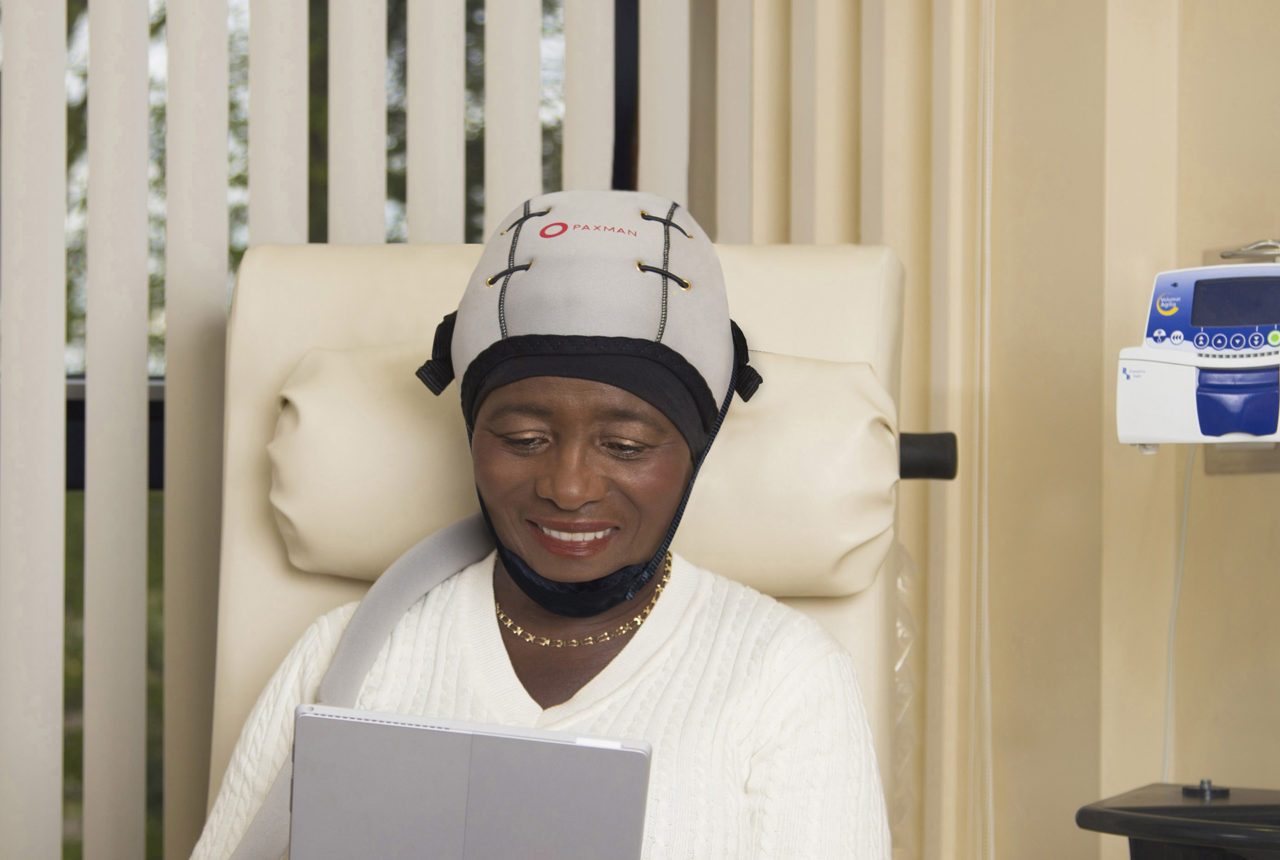For patients undergoing chemotherapy to treat cancer, hair loss can be a devastating side effect. But now a proven technology – available to Houston Methodist Sugar Land Hospital patients – can help reduce or even eliminate the hair loss known as chemotherapy-induced alopecia (CIA).
The Paxman Scalp Cooling System was approved by the FDA in 2017 and is now cleared for use on patients who are undergoing chemotherapy to treat solid-tumor cancers such as ovarian, breast, colorectal, bowel and prostate cancer.
The cooling system works by lowering the temperature of hair follicles immediately before, during and after chemotherapy. That prevents chemotherapy drugs from attacking fast-dividing hair follicle cells in the growth stage.
“Hair loss during chemotherapy is more than just an image issue,” said Amy Sebastian-Deutsch, director of oncology at Houston Methodist Sugar Land. “It’s also a very visible sign that a patient has cancer, which can lead to privacy concerns. Many patients also report that hair loss impacts how others see them and is harmful to their own sense of well-being. The scalp cooling system can be used by both men and women in order to reduce the likelihood of CIA.”
The scalp cooling system includes a soft, flexible cap that fits comfortably on the patient’s head for the duration of each chemotherapy treatment session. The cap is connected to a small cooling machine that keeps the scalp at a constant temperature, just a few degrees below normal. The cap can also be detached from the machine for brief periods to allow for greater mobility.
The reduction in scalp temperature slows blood flow to hair follicles and limits the impact of chemotherapy drugs, which work by preventing cell division.
“This is a major breakthrough that has very real benefits for both men and women fighting cancer,” said board-certified oncologist Jorge Darcourt, M.D., of Houston Methodist Oncology Partners at Sugar Land.
“Hair loss is almost always a topic of concern with patients, and many of them find that losing their hair is a constant reminder of their cancer and a real obstacle to a positive attitude. Now they can approach chemotherapy without the additional concern of hair loss and have more control in their fight against cancer.”


